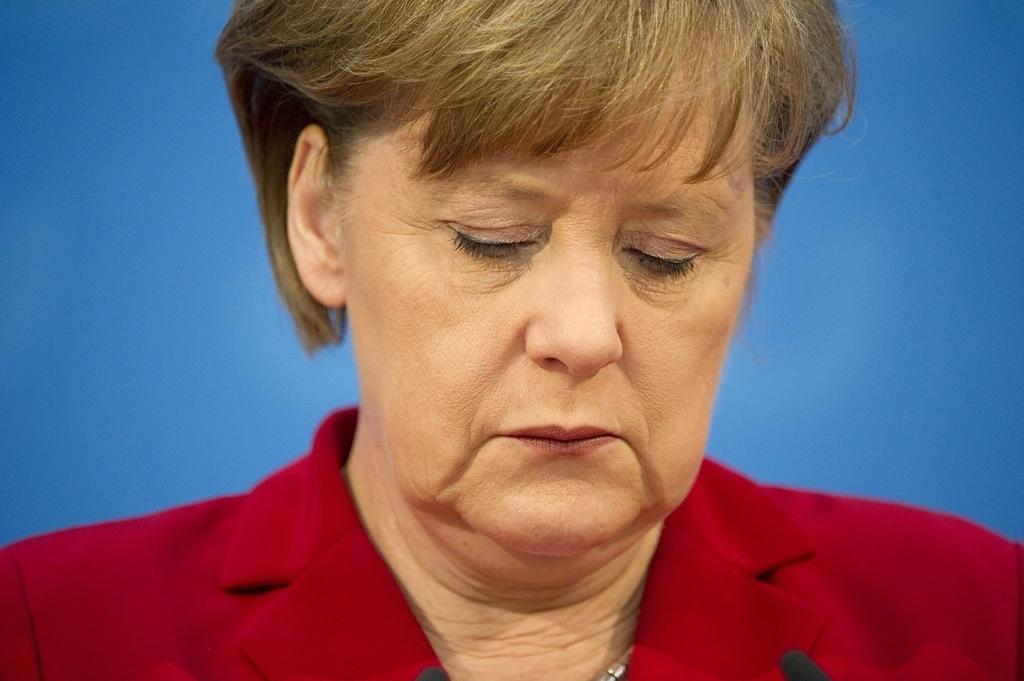Angela Merkel: Europe is facing its worst crisis since World War 2
German Chancellor Angela Merkel addresses a press conference at the Christian Democrats’ headquarters in Berlin on March 28, 2011.
BERLIN, Germany — Europe is facing a crisis not seen since World War 2, Germany's Chancellor Angela Merkel said Monday.
She warned that the collapse of the euro would mean the collapse of Europe, and pledged to do whatever it takes to prevent that from happening, Reuters reported.
As Greece and Italy scramble to form interim governments and implement urgent austerity measures, Merkel told a party conference that the crisis was an opportunity for positive change:
"Europe is in one of its toughest, perhaps the toughest hour since World War Two. […] If the euro fails then Europe will fails and we want to prevent and we will prevent this, […] because it is such a huge historical project.
"The historic challenge of our generation is to show we can use the crisis for a better future."
Speaking to members of her Christian Democrat CDU party in Leipzig, east Germany, Merkel described Europe as "the basis of our well-being."
The chancellor's speech follows domestic concerns that Germany – Europe's largest economy – has been forced to shoulder the burden of other euro zone members' debt.
More from GlobalPost: European diplomacy falls victim to euro zone crisis
The CDU is traditionally the most pro-Europe of Germany's political parties, according to Der Speigel magazine, but even the Christian Democrats have begun treating a potential overhaul of the euro zone as a real possibility.
Der Spiegel reported that the German Finance Ministry has been modelling the possible consequences of Greece exiting the single currency:
A so-called baseline scenario is based on the expectation that the situation does not get too bad. Under this scenario, Greece's exit from the monetary union could even contribute to the strengthening of the euro zone in the long term, following an initial period of turbulence. The thinking goes that the currency union could be more stable without its weakest member.
More from GlobalPost: What would happen if Greece leaves the eurozone?
There were signs Monday that the new governments in Greece and Italy would not be enough to steady financial markets. The Guardian's live blog described "worrying moves" in European bond markets, including the yield on Italian five-year bonds hitting 6.29 percent, its highest level of the euro era. Yield on Spain's 10-year bonds rose above 6 percent, while Belgium's 10-year debt was up at 4.6 percent.
Find GlobalPost's full coverage of the euro zone crisis here.
The story you just read is available for free because thousands of listeners and readers like you generously support our nonprofit newsroom. Every day, reporters and producers at The World are hard at work bringing you human-centered news from across the globe. But we can’t do it without you: We need your support to ensure we can continue this work for another year.
Make a gift today, and you’ll get us one step closer to our goal of raising $25,000 by June 14. We need your help now more than ever!
